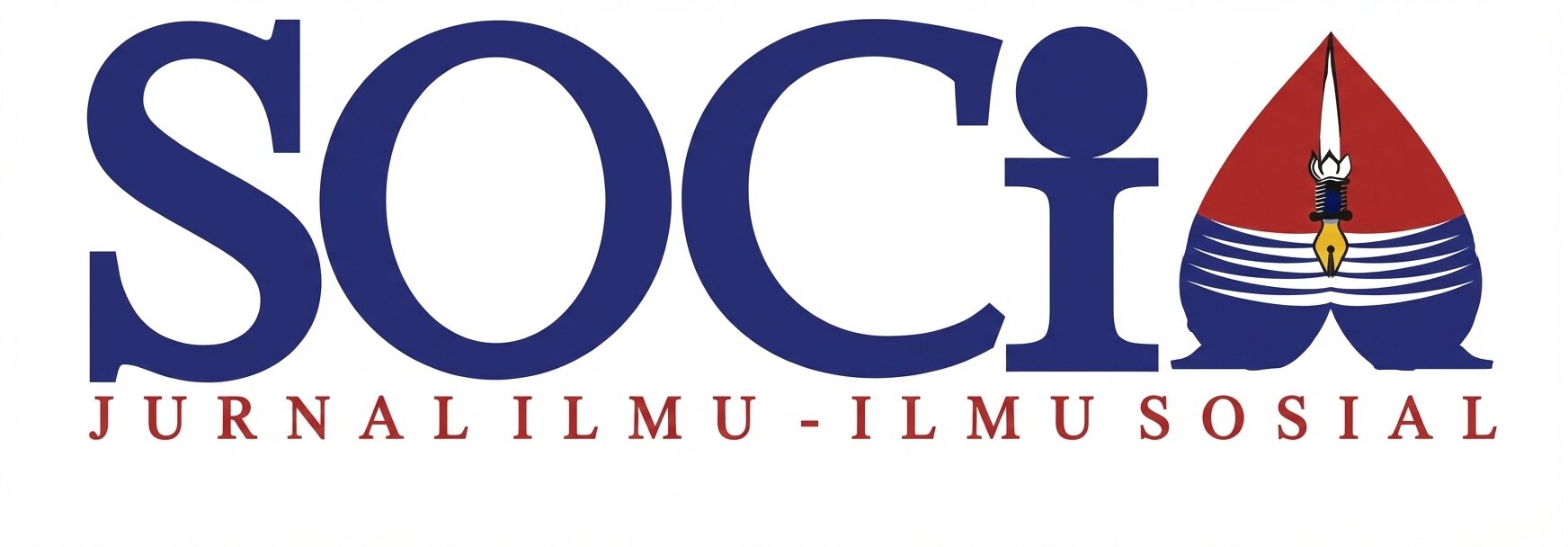Konstruksi kekuasaaan politik melalui program charity show media televisi
Downloads
Abercrombie, Nicholas, Stephen Hill, dan Bryan S. Turner. 2010. Kamus Sosiologi. Yogyakarta: Pustaka Pelajar.
Ariviyanti, Betari Chintya dan Sylvie Nurfebiaraning. 2017. Analisis Aktivitas Pembetukan Citra Politik Hary Tanoesoedibjo: Studi Semiotika Peirce pada Iklan TV Perindo "Mars Perindo Versi 2". Channel 5(1):48-58.
Badan Pusat Statistik (16 Juli 2018). Persentase Penduduk Miskin Maret 2018 Turun Menjadi 9,82 Persen.Diakses 17 Maret 2019. https://www.bps.go.id/pressrelease/2018/07/16/1483/persentase-penduduk-miskin-maret-2018-turun-menjadi-9-82-persen.html
Damsar. 2010. Pengantar Sosiologi Politik. Jakarta: Kencana.
Duverger, Maurice. 2010. Sosiologi Politik. Jakarta: Rajawali Pers.
Gaffar, Afan. 1991. Hubungan Patron-Client dan Konsekuensinya terhadap Lahirnya Pengusaha Indonesia: Review Buku Dr. Yahya Muhaimin. UNISIA 10(XI.IV):83-90.
Gatara, A.A. Said dan Moh. Dzulkiah Said. 2007. Sosiologi Politik: Konsep dan Dinamika Perkembangan Kajian. Bandung: Pustaka Setia.
Greenberg, Martin S. 1980. A Theory of Indebtedness, dalam Kenneth J. Gergen, Martin S. Greenberg, dan Richard H. Willis. 1980. Social Exchange: Advances in Theory and Research. New York and London: Plenum Press.
Hamad, Ibnu. 2004. Konstruksi Realitas Politik dalam Media Massa: Sebuah Studi Critical Discourse Analysis terhadap Berita-berita Politik. Jakarta: Granit.
Harga.web.id (17 September 2018). Update Harga Pasang Iklan di Televisi Nasional 2018. Diakses pada 19 Maret 2019. https://harga.web.id/berapakah-harga-pasang-ikan-di-televisi-ini-dia-jawabannya.info
Hariyadi, Taufan. 2018. Runtuhnya Pilar Demokrasi, Politik Kuasa Media Partai Perindo di MNC Group. DiMCC Conference Proceeding 1:110-130.
Komisi Pemilihan Umum (22 Juli 2014). Rekapitulasi Hasil Pemilu Tahun 2014. Diakses 18 Maret 2019. https://www.kpu.go.id/index.php/pages/detail/2014/282
Kuswandi, Wawan. 1996. Komunikasi Massa: Sebuah Analiasis Media Televisi. Jakarta: Rineka Cipta.
Molm, Linda D. 1997. Coercive Power in Social Exchange. Cambridge: Cambridge University Press.
Nosakros, Arya dkk. 2013. Komodifikasi Kemiskinan dalam Televisi Indonesia: Studi Komparatif antara Program "Jika Aku Menjadi" di Trans TV dengan Program "Bedah Rumah" di RCTI. Jurnal Komunikasi KAREBA 2(2): 175-185
Philipus, Ng. dan Nurul Aini. 2006. Sosiologi dan Politik. Jakarta: PT. RajaGrafindo Persada.
Poloma, Margaret M. 2004. Sosiologi Kontemporer. Jakarta: PT RajaGrafindo Persada.
Ritzer, George dan Douglas J. Goodman. 2011. Teori Sosiologi: Dari Teori Sosiologi Klasik Sampai Perkembangan Mutakhir Teori Sosial Postmodern. Bantul: Kreasi Wacana.
Sobur, Alex. 2004. Analisis Teks Media: Suatu Pengantar untuk Analisis Wacana, Analisis Semiotik, dan Analisis Framing. Bandung: PT. Remaja Rosdakarya.
Sunarto, Kamanto. 2004. Pengantar Sosiologi. Jakarta: Lembaga Penerbit Fakultas Ekonomi Universitas Indonesia.
Sutrisno, Mudji dan Hendar Putranto. 2005. Teori-Teori Kebudayaan. Yogyakarta : Kanisius.
Suyanto, Bagong dan M. Khusna Amal (ed.). 2010. Anatomi dan Perkembangan Teori Sosial. Malang: Aditya Media Publishing.
Tirto.id (6 Juli 2018). Perindo, Partai Politik Rasa MNC. Diakses pada 19 Maret 2019. https://tirto.id/perindo-partai-politik-rasa-mnc-cNvZ
Yusuf, Muri. 2014. Metode Penelitian: Kuantitatif, Kualitatif dan Penelitian Gabungan. Jakarta: Kencana.
Authors who publish with this journal agree to the following terms:
- Authors retain copyright and grant the journal right of first publication with the work simultaneously licensed under a Creative Commons Attribution License that allows others to share the work with an acknowledgement of the work's authorship and initial publication in this journal.
- Authors are able to enter into separate, additional contractual arrangements for the non-exclusive distribution of the journal's published version of the work (e.g., post it to an institutional repository or publish it in a book), with an acknowledgement of its initial publication in this journal.
- Authors are permitted and encouraged to post their work online (e.g., in institutional repositories or on their website) prior to and during the submission process, as it can lead to productive exchanges, as well as earlier and greater citation of published work (See The Effect of Open Access).

Ciptaan disebarluaskan di bawah Lisensi Creative Commons Atribusi-NonKomersial-BerbagiSerupa 4.0 Internasional.





